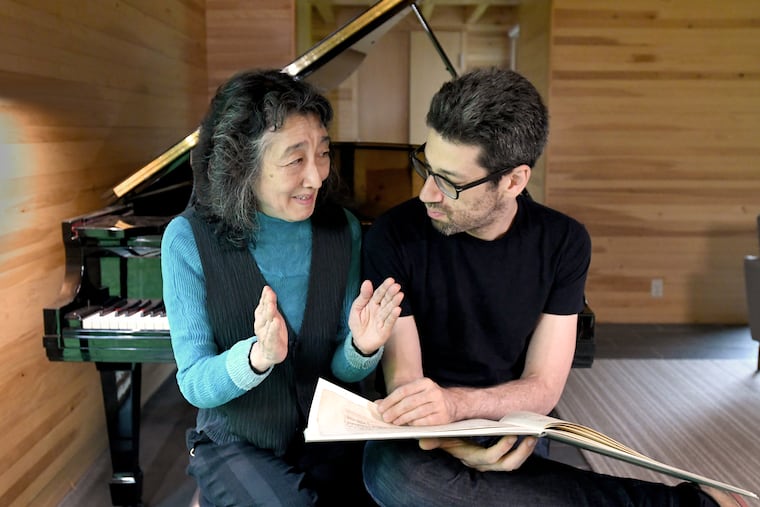Popular Philadelphian Jonathan Biss is new co-artistic director of prestigious Marlboro Music
The appointment of the Curtis Institute professor and frequent visitor to the Philadelphia Chamber Music Society echoes the leadership of Rudolf Serkin decades ago.

Jonathan Biss, the highly regarded Philadelphia pianist, has been named to help lead the Marlboro Music School and Festival. He will join pianist Mitsuko Uchida, who has been sole artistic director since 2014, and both will hold the title of co-artistic director, said Marlboro board chair and president Christopher Serkin in an announcement.
"Marlboro is a place I've been going to for 21 years, which is an alarming thing to think about," said Biss, 37. "This summer, I was playing the Schubert Fantasy with a young pianist and he was not born when I first went to Marlboro. This is the sort of thing people say lightly, but this really is my musical home. It has been for a long time. There is something in the air in Marlboro which is different, and it frees my imagination in a different way from anywhere else I go."
Biss, who studied at Indiana University and the Curtis Institute of Music, is a pioneer in engaging curious classical newbies through essays released as e-books and by leading a series of popular online Coursera courses with the Curtis Institute on the Beethoven piano sonatas.
Though he has a following of aficionados through recital and concerto appearances around the world, his presence in Philadelphia is strong. He is a member of the piano faculty at the Curtis Institute of Music and frequently appears under the banner of the Philadelphia Chamber Music Society, which is Marlboro's sister organization (the two groups share staff).
Biss has another Philadelphia connection: about a year ago, he moved from New York to Philadelphia's Graduate Hospital area.
Marlboro, in hilly southern Vermont, is more a musicians' private retreat than a traditional music festival, though performances are open to the public. About 85 musicians, from emerging to veteran, are given liberal stretches of time each summer to read through repertoire and rehearse, developing chamber-music relationships that sometimes blossom into permanent ensembles. The famed Guarneri Quartet jelled at Marlboro in the early 1960s.
Biss' appointment has historic resonance; Marboro's artistic director for four decades was another Curtis pianist, Rudolf Serkin, who was also Curtis' director. Before Uchida —who lives in London — took over as artistic director four years ago, she shared the job with pianist Richard Goode. How do two artistic directors work together?
Biss, who says he has known Uchida since he was 16, says it's something he will learn as he goes.
"I think the main job is to put that group of musicians together and to make sure those 85 people feel happy and productive and inspired when they are there," he says. "It involves thinking about the audition process, the balance of senior and junior musicians, what kind of repertoire will be played — I'm happy to say there is a really robust composer-in-residence program at Marlboro."
More generally, the job involves shaping the values of the place, and that, he says, "is maybe even more important than the other aspects I just mentioned."
Musicians today operate at a fast pace, often quickly traveling from one concert date to another on the other side of the globe. To set down in one spot and rehearse a piece for seven weeks, perhaps to eventually perform it, perhaps not, represents a chance at artistic growth that is rare.
"I just think that is such a beautiful way of approaching music," says Biss. "It's not practical for the rest of life, but going to Marlboro and working that way for a couple of months every summer has been the best and one of the most critical components of my life since I started going."
>> READ MORE: Ode to the joy of learning Beethoven with Biss
As for changes, Biss says "it seems wise to take a bit of time to learn the institution from the inside before coming in and saying I want this and this to change. I think that, again, given that the advantage of Marlboro is how much time one has to explore, what I am most interested in creating is an environment where people feel free to do so. Which is always a challenge, because musicians, certainly accomplished ones, are so driven but also tend to be perfectionistic and very afraid of making a mistake.
"I think exploring the music with love and devotion, but maybe not awe, has to be the goal."